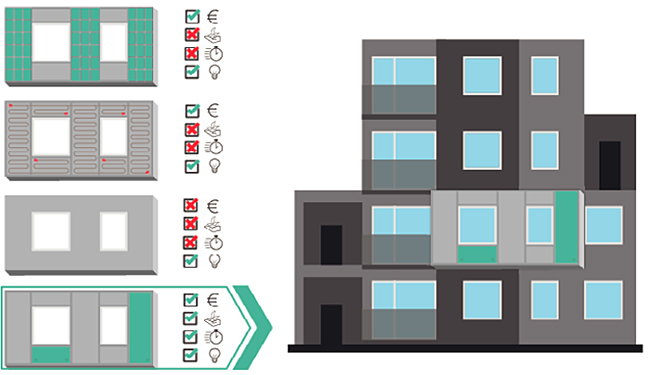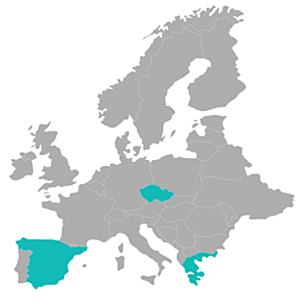Insight
Reduction of energy consumption, emissions and carbon footprint of buildings is vital in meeting the EU's climate and energy targets for 2030. The Near Zero Energy Building (NZEB) concept requires a high level of energy efficiency, in combination with on-site renewable energy production and use. It is evident that improving the energy performance of existing buildings calls for retrofit/renovation actions that not only meet the energy and environmental targets, but also ensure minimum disturbance of the inhabitants and indoor comfort. The PLURAL project aims to tackle this challenge by developing "Plug-and-Use" kits for fast and energy efficient deep retrofitting of residential buildings.
About PLURAL
PLURAL is a collaborative research project supported by the European Commission under the Horizon 2020 Programme for Research and Innovation (Call H2020-NMBP-ST-IND-2020), with a duration of 48 months.
The project consortium is made up of 18 partners from 7 European countries. Each partner develops activities in different areas and locations and together with the 6 demonstration sites (3 real and 3 virtual), this collaboration ensures that the developed solutions will be applicable in a large range of use cases.
"The previous experience of the consortium motivated the PLURAL concept, taking into consideration that current building renovation processes are time consuming, expensive and often unattractive to owners due to disturbance. The need for lowering renovation time and cost can be readily achieved via off-site pre-fabrication. Furthermore, since the envelope is the main interface between buildings’ occupants and the outside, it is important to regulate energy gains and losses across it. Low cost, low weight, environmentally friendly insulation, compliant with local fire and structural regulations in the form of prefabricated panels can be used for fast and reliable renovation. PLURAL goes further and proposes prefabricated kits for residential buildings, that not only regulate energy gains and losses across the envelop but also actively interface with the building, integrating renewable energy production systems. The PLURAL all-in-one kits ensure NZEB status after renovation and take into account occupant comfort requirements; they are thus named "Plugand-Use Kits" (PnU Kits), says Maria Founti, the Project Coordinator from the National Technical University of Athens (NTUA).

Demonstration sites
 The PLURAL PnU kits will be integrated at three different residential building sites, located in Greece, Spain and the Czech Republic, featuring different climate conditions and heating/cooling needs and user requirements, thus demonstrating the versatility and robustness of the overall concept.
The PLURAL PnU kits will be integrated at three different residential building sites, located in Greece, Spain and the Czech Republic, featuring different climate conditions and heating/cooling needs and user requirements, thus demonstrating the versatility and robustness of the overall concept.
Additionally, PLURAL includes three building demos for virtual replication in Switzerland, Germany and Sweden for simulating and validating the performance and operation of the solutions under further conditions. The real demonstrators will also be used for their assessment under conditions that differ from the actual ones. The results will be used for establishing best available techniques and guidelines regarding all implementation phases, including shipping, installation, maintenance, and decommissioning.
Concept
The key for the development and demonstration of the PLURAL PnU kits is to understand how to select and integrate various renewable energy technologies, incorporate them in prefabricated façade components and optimize their performance for different building types, climates and socio-economic conditions. Software tools to support digital design and decision making are developed. Additionally, PLURAL focuses on how to manufacture these kits while minimising energy use and material waste.
Objectives
The PLURAL project aims to design, validate and demonstrate a palette of versatile, adaptable, scalable, off-site prefabricated plug-and-play kits that account for user needs, named "Plug-and-Use” (PnU) kits".